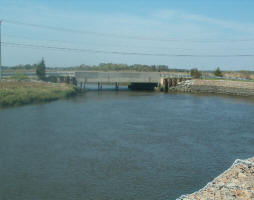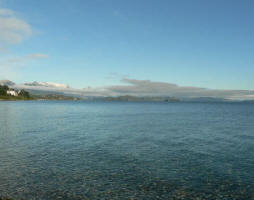 Lebanon: Water supply is priority issue for the south
Lebanon: Water supply is priority issue for the south
Water supply to hundreds of thousands of people across southern Lebanon remains the priority development issue, say officials, seven months after Israel's bombardment of the area severely damaged an already inadequate water and sanitation system. The UN Children's Agency, UNICEF, is implementing a series of projects across Lebanon to improve water supply, through its Water, Environment, Sanitation and Hygiene (WESH) unit. According to WESH figures, only 56 percent of Lebanese are connected to the mains water supply, which in poorer rural areas sometimes only works one day a week. Nearly one in three Lebanese buy drinking water while average leakages of 50 percent from pipes leave an annual water shortfall of around 40 per cent, largely supplemented by mobile water trucks.
Until Israel's withdrawal from southern Lebanon in 2000, much of the area's mains water supply came from Israel itself. The already inadequate Lebanese water supply system left behind after the Israeli occupation ended was further damaged by last summer's 34-day war between Israel and the armed wing of Lebanese political party Hezbollah. The Israeli bombardment included the destruction of water tanks, springs and pipelines, leaving most of southern Lebanon totally cut off from mains water supply in the immediate aftermath of the war. Israel said it was targeting terrorist infrastructure. In Khiyam, the mountain-top town's main 1,000-cubic-metre water tank was partially destroyed by Israeli fire and is now close to being rebuilt with money from WESH's US $9m annual budget.
WESH is also helping rebuild 12 other water tanks as well as pipelines, and has provided 12 generators to southern towns to keep water pumps working during the daily electricity cuts. Jihad al-Bina, Hezbollah's construction company, has repaired the damaged network of pipes in Khiyam, but local leaders say water shortages will continue, and blame the central government for years of neglect. Until two years ago, Lebanon's water system was managed by 22 separate institutions. Those have now been reduced to four, but cost recovery on supplying water to the public remains at just 60 percent, according to UNICEF. A lack of urban planning by central government means homeowners often connect themselves to the mains water supply, while the fixed annual water bill of US $120 and absence of water metres in homes perpetuates disparities of water access for rich and poor. WESH now joins fortnightly meetings with the government's Water Establishment for the South department to coordinate strategy.
Lebanon suffers huge disparities in the distribution of its water resources across southern areas of the country. In Sidon, a southerly port city, water supply for the 17-square-kilometre city will remain at three times the requirement of residents until 2025, according to WESH, due to an abundance of natural wells. By comparison, the poorly supplied mains water system for the council of Nabatiyeh, further south, covers some 800 square kilometres, leading to mains water only three times a week.
With 70 per cent of Lebanon's water system lacking any form of sewage treatment, most effluent simply ends up in rivers, further compounding pollution.
By the end of March, 29 gas chlorination systems will have been installed across southern Lebanon, with WESH assistance, to increase water quality, while the EU and World Bank are working on a scheme to build 12 sewage treatment stations across the country.
| Contact information |
© IRIN. All rights reserved.
|
|---|---|
| News type | Inbrief |
| File link |
http://www.irinnews.org/Report.aspx?ReportId=70642 |
| Source of information | IRIN |
| Keyword(s) | Water supply, sewage treatment |
| Subject(s) | ANALYSIS AND TESTS , CHARACTERISTICAL PARAMETERS OF WATERS AND SLUDGES , DRINKING WATER , DRINKING WATER AND SANITATION : COMMON PROCESSES OF PURIFICATION AND TREATMENT , HEALTH - HYGIENE - PATHOGENIC MICROORGANISM , HYDRAULICS - HYDROLOGY , NATURAL MEDIUM , POLICY-WATER POLICY AND WATER MANAGEMENT , PREVENTION AND NUISANCES POLLUTION , SANITATION -STRICT PURIFICATION PROCESSES , SLUDGES , WATER DEMAND , WATER QUALITY |
| Relation | http://www.emwis.net/countries/fol749974/country958156 |
| Geographical coverage | Lebanon |
| News date | 12/03/2007 |
| Working language(s) | ENGLISH |
 you are not logged in
you are not logged in





